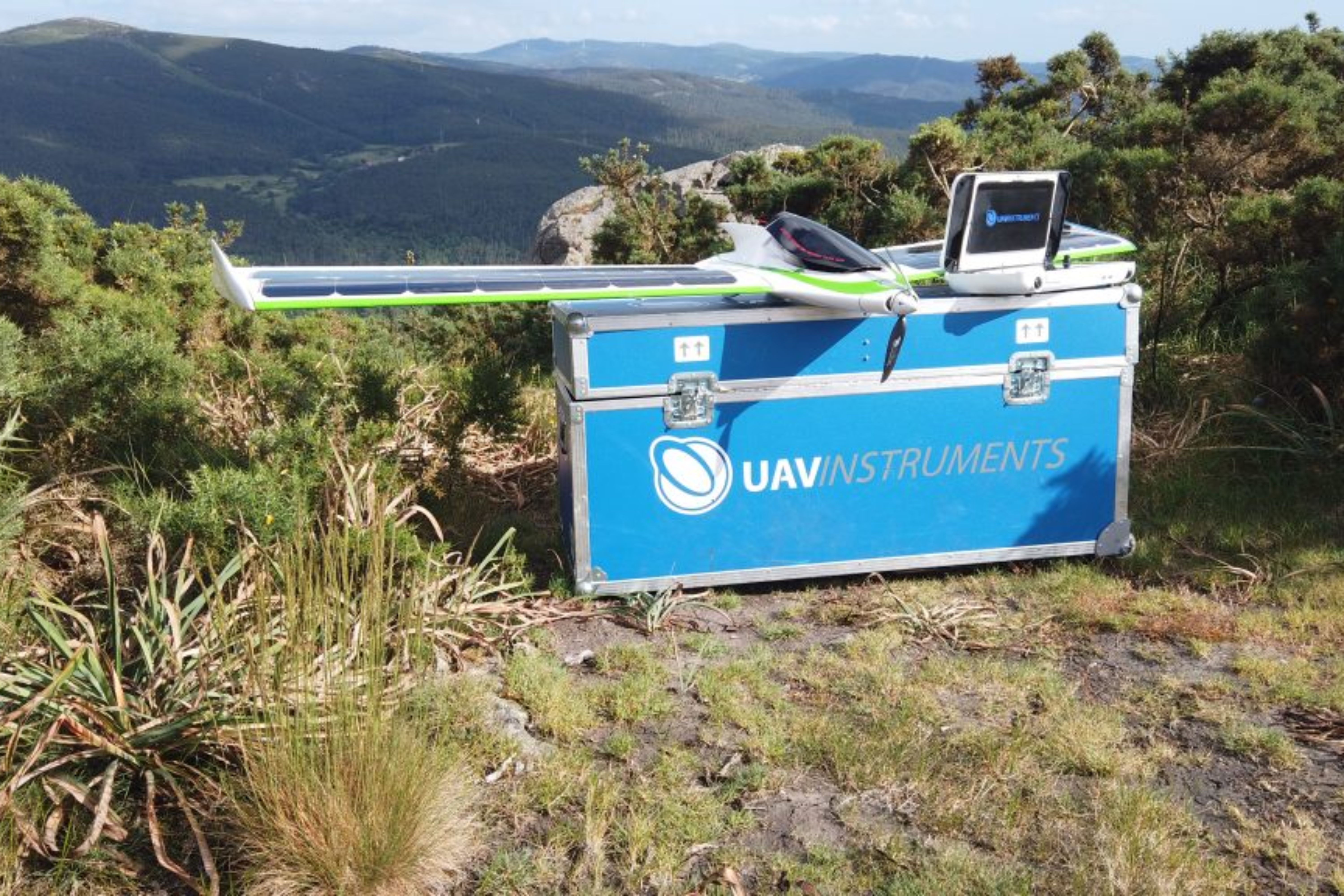
Latest information

Drones to boost smart agriculture and improve public services
UAV Instruments was born in the spring of 2016 as a result of the effort and vision of two companies with a well-proven track record in this sector of unmanned aerial vehicles. The first, Cartogalicia, with more than ten years of experience in the use of unmanned aerial platforms for the topographic sector, and the second, ANSI, an engineering company focused on industrial services based on designing innovative solutions. UAV Instruments' business strategy focuses on different flying platforms with various payload capacities and autonomy.
In 2017 Marine Instruments (National Innovation Award 2022 in the SME category awarded by the Ministry of Science and Innovation) acquired a majority stake in UAV Instruments. The Nigrán-based company has been a global leader since its inception in the development and manufacture of satellite buoys and tracking equipment for the fishing industry and has spent the last two years developing a solution based on an unmanned fixed-wing to support free school tuna fishing that will allow large tuna vessels to dispense with helicopters. Adapted to marine conditions, its electronic equipment is applied in aquaculture, fisheries, security and defence.
Gabriel Gómez, CEO of UAV Instruments, explains that the company is involved in the development of drones to be used for various applications. They are currently in the marketing phase of their unmanned aerial vehicle (UAV) CIES 2.2 SP, a UAV for photogrammetry, topography, remote sensing, reconnaissance and precision agriculture.
This device is ideal for professional use where large areas and terrain characteristics are a challenge, thanks to its high-performance solar panels that can provide extra autonomy of approximately 8 hours and its aerodynamically efficient flying wing design that allows it to cope with winds of up to 50 km/h.
The CIES is easy to operate and requires only a few days of training for new operators thanks to its simple catapult take-off method, autonomous flight and automatic landing via parachute. The system incorporates autonomous flight procedures, including a number of pre-programmed fail-safe options in accordance with current safety regulations.
This fixed-wing drone, with increased autonomy and range, is designed to assist in so-called smart agriculture to monitor water stress in drought-affected areas, or the degree of crop maturity.
Their participation in the Xunta de Galicia's Business Factory Aero programme (BFaero) allowed them to expand their operational capacity in areas such as the early detection of fires, support for state security forces in special operations or the search for missing persons. Its applications go beyond this and it can also be used in the provision of services to private companies, such as the monitoring and inspection of oil pipelines, power lines, farms or mines.
The drone they are marketing has a fixed wing design capable of flying with little energy, to which they have added solar panels, so that it generates the energy it consumes, with a great autonomy of between 6 and 8 hours, a wingspan of two metres and a weight of four kilos, which makes it easy to transport.
They themselves have designed a catapult for launching the UAV, which lands with a parachute system anywhere. Their platforms are designed for the domestic market, but they also have an internationalisation plan underway to market the product in emerging markets such as Latin America, North Africa and the Middle East, where there are large, difficult-to-access areas.
In its first three editions, the BFaero accelerator has already encouraged participation from 19 projects, creating eight projects and generating an investment of 5 million euros. The Xunta has just closed a fourth edition and announced a fifth, with a total investment of 7.2 million euros to support 25 companies in the sector. The last edition was a great success with the presentation of 88 applications.